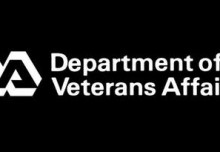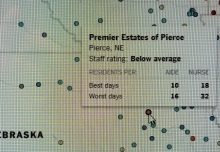 Count slowly from one to sixty-seven…one thousand one, one thousand two, one thousand three… By the time you reach 67, one more person in the United States will have been diagnosed with Alzheimer’s Disease. In fact, one in three Americans will die with Alzheimer’s Disease. I have talked in the past about new diagnostic breakthroughs and some pharmacological and nutritional and other ways to modestly stave off the progression of this disease, but the fact is that there is no cure for Alzheimer’s. Alzheimer’s remains the only disease in the top ten causes of death in the United States that cannot be prevented, cured or slowed.
Count slowly from one to sixty-seven…one thousand one, one thousand two, one thousand three… By the time you reach 67, one more person in the United States will have been diagnosed with Alzheimer’s Disease. In fact, one in three Americans will die with Alzheimer’s Disease. I have talked in the past about new diagnostic breakthroughs and some pharmacological and nutritional and other ways to modestly stave off the progression of this disease, but the fact is that there is no cure for Alzheimer’s. Alzheimer’s remains the only disease in the top ten causes of death in the United States that cannot be prevented, cured or slowed.
But from the perspective of geriatric care management, it is not just the patient with the disease that requires help; it is their families and other caregivers in their orbits. To that end, I would like to share a brief overview of some of the resources available to support all the individuals who need help when this disease strikes:
- Alzheimer’s Disease Alzheimer’s and Dementia Caregiver Center (http://www.alz.org/care/alzheimers-dementia-support-help.asp ) is an arm of the Association that has done the most to help patients with the disease as well. The Center provides training and other resources to caregivers as well las a 24-hour telephone hotline.
- Family Caregiver Alliance(https://www.caregiver.org/national-center-caregiving) offers families resources at the local, state and national level. Not all locales may be covered, but their information and other resources at the national level can be a real asset to families.
- Rosalynn Carter Institute for Caregiving (http://www.rosalynncarter.org) offers training and education going beyond basic pamphlets. They do peer-reviewed literature searches across a host of related topics as well as sponsorship of researcher into interventions that work.
- Eldercare Locator (http://www.eldercare.gov/eldercare.NET/Public/index.aspx ) is funded by the U.S. government and provides a unique matrix resource approach to resources nation-wide. From their web site one can search a range of service types by zip code to find specific services in your own locale.
And, of course, the Aging Life Care Association (https://www.aginglifecare.org) helps visitors to their web site with a Care Finder down to the specific zip code level. If you reflect back on other public health challenges where cures ultimately have been found, they all started with building from the grass roots a support system that not only supported the patients and their families, but also the march to a cure. It takes a village.
Charlotte Bishop is an Aging Life Care Professional and a Geriatric Care Manager and founder of Creative Care Management, certified professionals who are geriatric advocates, resources, counselors and friends to older adults and their families in metropolitan Chicago. Please email your questions to info@creativecaremanagement.com.





